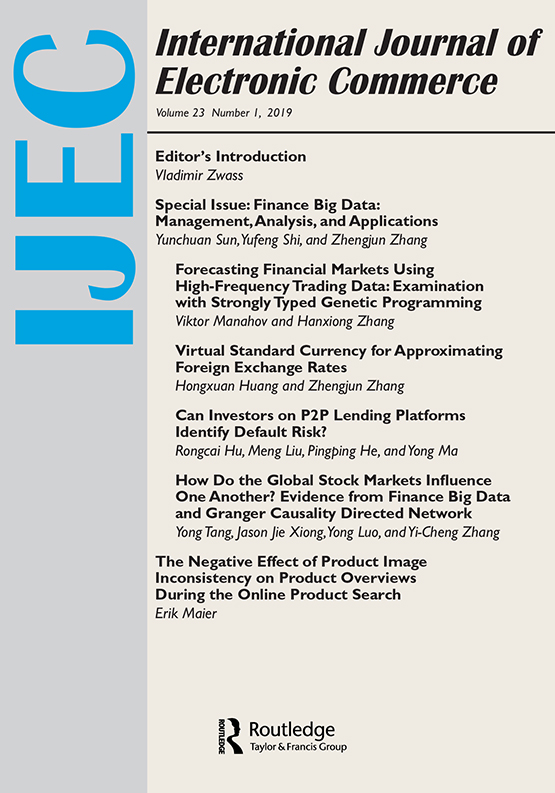This Product Seems Better Now: How Social Media Influencers’ Opinions Impact Consumers’ Post-failure Responses
IF 3.8
3区 管理学
Q2 BUSINESS
International Journal of Electronic Commerce
Pub Date : 2023-07-03
DOI:10.1080/10864415.2023.2226898
引用次数: 1
Abstract
ABSTRACT Extant research on social media influencers primarily focuses on the prepurchase stage (i.e., how influencers affect consumers’ purchase intentions), while overlooking the postpurchase stage. In this research, we investigate how the valence of an influencer’s product review can impact consumers’ affective states after a dissatisfactory experience with the product. Specifically, two rival hypotheses, based on Social Contagion theory and cognitive dissonance theory, respectively, are tested to assess whether an influencer’s positive (vs. negative) review about the same product can improve consumers’ affect. Results from automatic facial expression analysis and sentiment analysis show that an influencer’s positive (vs. negative) review leads to an improvement in consumers’ post-failure affect. Reconciling the two theories, the authors show that the improvement in consumers’ post-failure affect is a result of their improved attitude toward the product, following an influencer’s positive review. In addition, findings suggest this effect is moderated by the level of trust in the influencer, as well as the severity of the product failure. The results also show an important managerial outcome: An improvement of consumers’ post-failure affect (i.e., happiness) leads to a decrease in consumers’ willingness to share negative word-of-mouth.这个产品现在看起来更好了:社交媒体影响者的意见如何影响消费者的失败后反应
现有关于社交媒体影响者的研究主要集中在购买前阶段,即影响者如何影响消费者的购买意愿,而忽视了购买后阶段。在这项研究中,我们调查了网红的产品评论的效价如何影响消费者对产品的不满意体验后的情感状态。具体来说,分别基于社会传染理论和认知失调理论,测试了两个对立的假设,以评估网红对同一产品的正面(与负面)评论是否能改善消费者的影响。自动面部表情分析和情绪分析的结果表明,网红的积极(与消极)评论导致消费者失败后情感的改善。将这两种理论结合起来,作者表明,消费者失败后情感的改善是他们对产品态度的改善的结果,在网红的积极评价之后。此外,研究结果表明,这种影响会受到对影响者的信任程度以及产品失败的严重程度的影响。研究结果还显示了一个重要的管理结果:消费者失败后情感(即幸福感)的提高导致消费者分享负面口碑的意愿下降。
本文章由计算机程序翻译,如有差异,请以英文原文为准。
求助全文
约1分钟内获得全文
求助全文
来源期刊

International Journal of Electronic Commerce
工程技术-计算机:软件工程
CiteScore
7.20
自引率
16.00%
发文量
18
审稿时长
>12 weeks
期刊介绍:
The International Journal of Electronic Commerce is the leading refereed quarterly devoted to advancing the understanding and practice of electronic commerce. It serves the needs of researchers as well as practitioners and executives involved in electronic commerce. The Journal aims to offer an integrated view of the field by presenting approaches of multiple disciplines.
Electronic commerce is the sharing of business information, maintaining business relationships, and conducting business transactions by digital means over telecommunications networks. The Journal accepts empirical and interpretive submissions that make a significant novel contribution to this field.
 求助内容:
求助内容: 应助结果提醒方式:
应助结果提醒方式:


